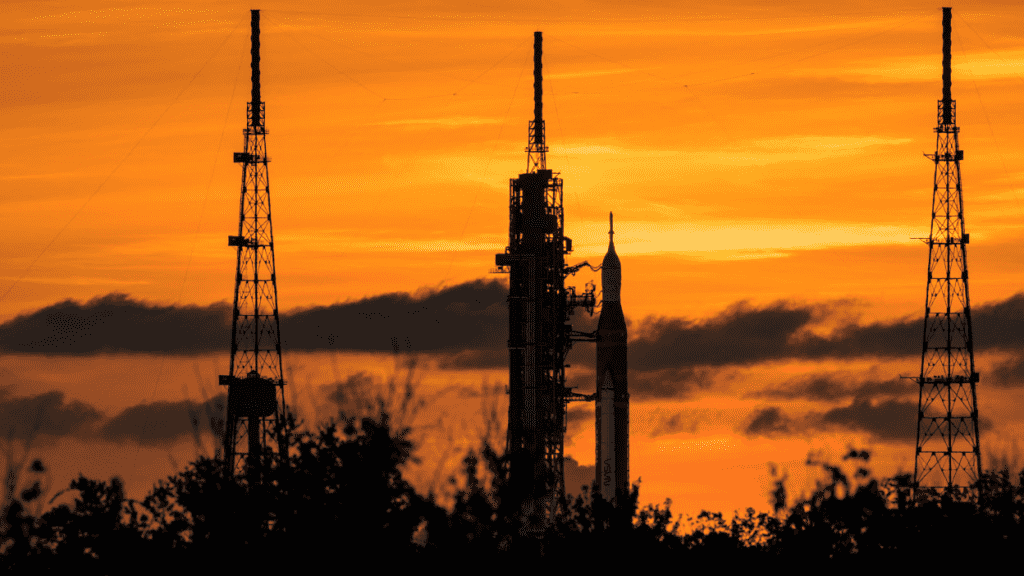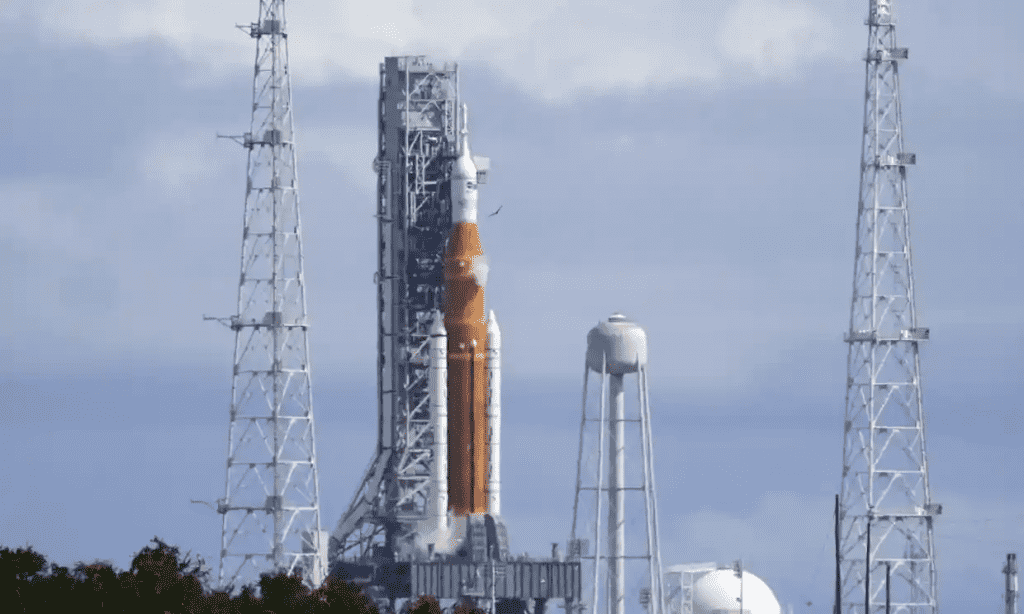NASA is postponing the launch of its new moon rocket on Tuesday amid concerns about a tropical storm coming for Florida that might become a major hurricane.
It’s the third postponement in a month for the lunar-orbiting test flight, a follow-up to Nasa’s Apollo moon-landing programme half a century ago. Previous scrubs were caused by hydrogen fuel leaks and other technical difficulties.

The Caribbean’s Tropical Storm Ian, which is now whirling, is expected to intensify into a hurricane by Monday and hit Florida’s Gulf coast by Thursday. However, the whole state—including NASA’s Kennedy Space Center—lies within the cone showing the expected path of the storm’s centre.

NASA decided to cancel Tuesday’s scheduled launch attempt in favour of preparing the 322-foot (98-meter) rocket for a potential Saturday return to its hangar due to the increasing uncertainties. Managers will make a decision on its removal from the launch pad on Sunday.
If the rocket stays on the launch pad, NASA might attempt a launch on October 2, the penultimate option before a two-week blackout period. However, a rollback late Sunday or early Monday would almost certainly result in a significant delay for the test flight, perhaps extending it into November.
Following decades of focusing on low-Earth orbit with space shuttles and the International Space Station, the uncrewed test mission Artemis I represents a turning point in NASA’s post-Apollo human spaceflight program.

If the first test flight goes well, astronauts will embark for the next mission in 2024, which will lead to a two-person lunar landing in 2025.


